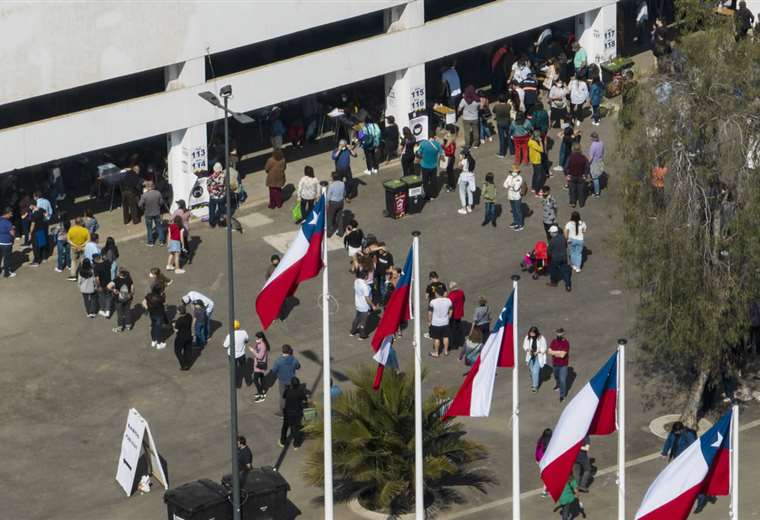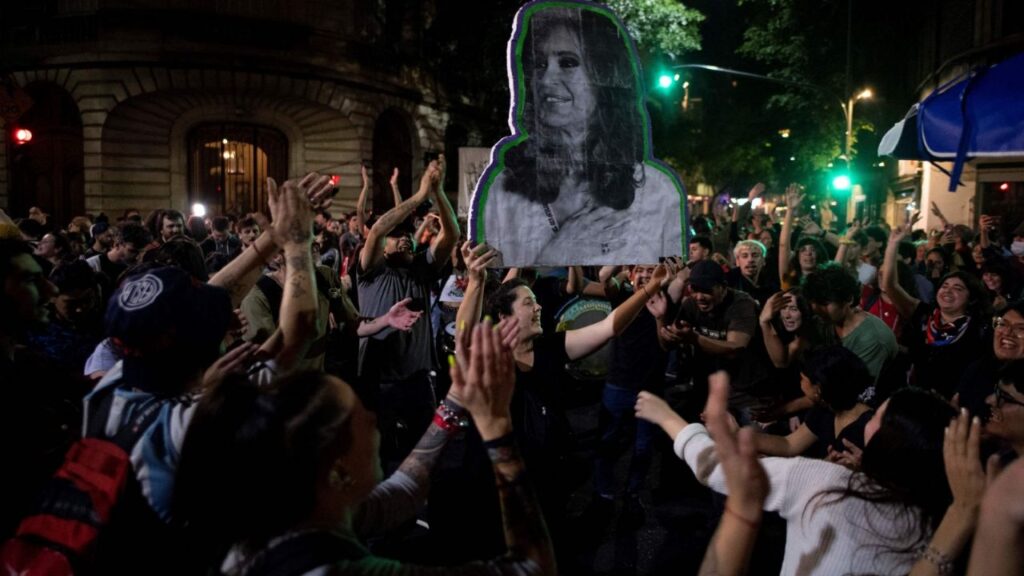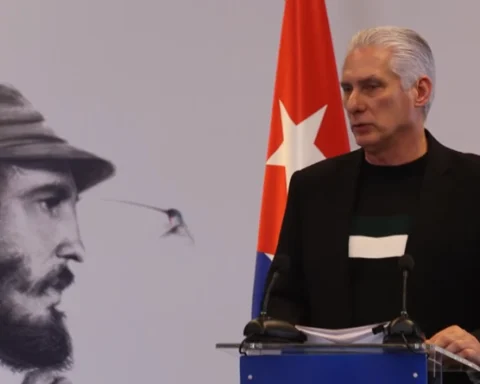More than 15 million voters voted this Sunday in Chile to approve or reject a new Constitution that seeks to change an ultra liberal model inherited from the dictatorship of Augusto Pinochet (1973-1990) to establish greater social rights.
Since the polling stations opened early at 08:00 (12:00 GMT), long queues of voters have been seen. The centers will close at 18:00 local (22:00 GMT) this Sunday.
Chilean President Gabriel Boric assured that whatever the result of this Sunday’s constitutional plebiscitewill call for “national unity” in an exercise with “more democracy” to overcome social fractures, he said when voting to the applause of supporters in his hometown of Punta Arenas, the astral extreme of Chile, facing the Strait of Magellan.
Former President Michelle Bachelet, very popular in this country, said that if the Rejection option wins as the polls anticipate, “the demands of the Chileans are not going to be satisfied” and a new process should be called. The former president voted in Geneva, Switzerland, where she has just left her position as United Nations High Commissioner for Human Rights.
In cities in the north, south and center of the country, many got up early to vote, which is mandatory after a decade. in Quilicura, on the outskirts of Santiago, voter Rosa González looked anxious. “Between the nerves for this plebiscite I slept little (…) So I arrived much in advance. Better!”, he said.
The “Rejection” option of the new Constitution has led all the polls for more than a month, but the “Approve” campaign mobilized crowds, especially in Santiago, fueling the illusion of victory.
The closing acts of the campaign on Thursday in the capital of this country of almost 20 million inhabitants, they gave two very different photos that contrast with the forecasts.
The “Apruebo” street party gathered between 250,000 and 500,000 people, according to the organizers, while the “Rechazo” closing ceremony consisted of an event of no more than 400 people in an amphitheater in Santiago.
“What is seen in the polls is confirmed, that the advantage of ‘I approve’ in Santiago is going to be very important over the rejection”says sociologist Marta Lagos, founder of the Mori pollster.
“But that doesn’t mean that ‘Apruebo’ is going to win (… well) it has a great disadvantage in the south and north of the country,” areas that suffer from violence and insecurity, adds Lagos.
While in the south there are conflicts over land claimed by Mapuche indigenous groups, in the north there is an incessant influx of undocumented immigrants living on the streets and that has generated the appearance of mafias of human traffickers and violent crimes.
“Around here, people go more for rejection (…) they believe that it is the best way, because they are afraid of changes. They have to eat, they have work and they think that they are going to lose it“, Alfredo Tolosa, a 47-year-old worker at a lumber company in Tucapel, a town of 13,000 inhabitants in the Biobío region (south), told AFP.
– “I approve” is young –
For the first time in more than a decade, attendance at the polls is mandatory under penalty of a maximum fine of 180,000 pesos (about $200). It’s, together with the participation of young peoplecould tip the balance among the more than 15 million voters.
The massive closing ceremony of “‘Apruebo’ confirmed that many young people are going to vote, especially in the Metropolitan region, and that these young people favor the Approve,” said Lagos.
Experts expect the participation of more than 11 million people, well above the 8.3 million who voted in December, when leftist Gabriel Boric won the presidential electionin what is already anticipated as a “participatory revolution”.
In the extreme north of the country, in the city of Arica, “the new generations are more for ‘I approve’ and want changes (…) the difference is generational,” estimates Aníbal González, 55, owner of a breeding farm pigs.
– Impulse of “Rejection” –
The 178-page text enshrines a “Social State of Rights”, in response to claims expressed in the massive social demonstrations of October 2019.
The project consecrates the indigenous plurinationality, maintains the market economy and establishes a new catalog of social rights in health, education and pensions, with a strong environmental emphasis and protection of new rights.
One of the main questions raised by critics of the new Constitution project lies in the performance of the members of the convention that drafted the text, elected by popular vote with gender parity and with 17 indigenous seatspointed out the political scientist Marcelo Mella, an academic from the University of Santiago.
But whatever the result, the polls show a broad political and citizen consensus to make changes that allow the constitution in force since the dictatorship to be buried.


















